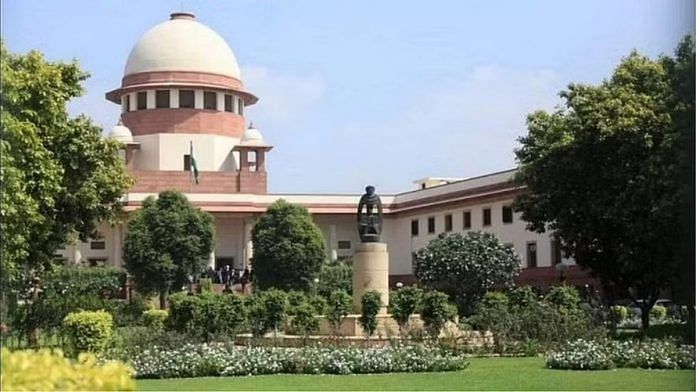New Delhi: Calling it a “a coarse case of gender discrimination and inequality”, the Supreme Court last week ordered Rs 60 lakh compensation to a military nursing service officer whose services were terminated in 1988 on the ground of “marriage”.
In doing so, the Supreme Court upheld the order passed by the Armed Forces Tribunal (AFT) in March 2016, setting aside the dismissal of former Lieutenant Selina John.
John was selected for Military Nursing Service (MNS) as a trainee at Army Hospital, Delhi, in December 1982. She was granted commission in December 1985 to the rank of lieutenant in the MNS and posted at Military Hospital, Secunderabad. She then married an Army officer in April 1988.
However, John was released from the MNS months later in August 1988. She has since alleged she was removed without any show-cause notice or hearing and not given any opportunity to defend her case.
The regional bench of the AFT in Lucknow set aside her dismissal and ordered a compensation of Rs 5 lakh to John in 2016. The central government and the Army then challenged this order in the Supreme Court.
The top court bench, comprising Justices Sanjiv Khanna and Dipankar Datta, pointed out the rule that was used to remove her only applied to women nursing officers. It then observed, “Such rule was ex-facie manifestly arbitrary, as terminating employment because the woman has got married is a coarse case of gender discrimination and inequality. Acceptance of such patriarchal rule undermines human dignity, right to non-discrimination and fair treatment.”
The court said that laws and regulations resting on “gender-based bias are constitutionally impermissible”, and that rules making marriage of women employees and their domestic involvement a ground for disentitlement would be unconstitutional.
The court further noted that Army Instruction No. 61 of 1977, titled “Terms and conditions of service for the grant of permanent commissions in the Military Nursing Service”, was withdrawn subsequently in August 1995.
The conditions under this provided that an officer of the military nursing services could be terminated for various reasons, including “on getting married”. These conditions were further modified in 1989, to say that an officer may be permitted to remain in service even after marriage at the discretion of the Directorate General of Armed Forces Medical Services (DGAFMS) for a period of two years at a time, and that their case would be reviewed periodically every two years.
Also read: More women judges a constitutional imperative for better justice, says Justice Nagarathna
‘Personal bias’
John’s removal order, part of the AFT order, said she was being relieved “on marriage grounds of her low ACR profile”.
An ACR, or annual confidential report, is meant to assess an officer’s performance and potential, and provide feedback on areas where they can improve. She alleged that she was not graded low on her ACR, and that the dismissal was due to a “personal bias”. She claimed her marriage to the officer annoyed the principal matron of the hospital.
The tribunal had ruled in John’s favour, while also speaking of love. It quoted songs of Meera, Radha and Saint Theresa, and said when John fell in love with the officer, the authorities “should have welcomed the event and should have greeted the petitioner and her husband for solemnising marriage with good wishes for happy matrimonial life” (sic). Instead, they caused them “mental pain and agony”, it added.
The tribunal ruled that under the service rules, the government could have terminated John after obtaining formal consent from the President, and not the Lt. Colonel as had been done in this case. It also found that John’s work was never assessed to find her unsuitability necessary to make entry in ACR.
It further noted that as per the rules, John got married after a lapse of two years from the date of commission, and therefore, she was liable to continue in service up to the age of superannuation.
She was asked to be reinstated in service within three months. It said in case she had reached the age of superannuation of the rank, she should be paid full salary till the age of superannuation — 55 years or more — with notional promotion, along with pension and other post-retirement benefits.
It had ordered a compensation of Rs 5 lakh to be paid to John, and observed, “It is irony of our system that the petitioner who suffered from highhandedness, had to invest almost 25 years to obtain justice from the Court of Law. The pleasure and happiness of life which has been denied to the petitioner cannot be compensated in terms of money, but symbolically she seems to be entitled for exemplary costs and all service benefits to maintain the majesty of law in our democratic polity.”
(Edited by Tikli Basu)
Also read: What interim SC order on Modi govt’s forest conservation law means for environmental protection



